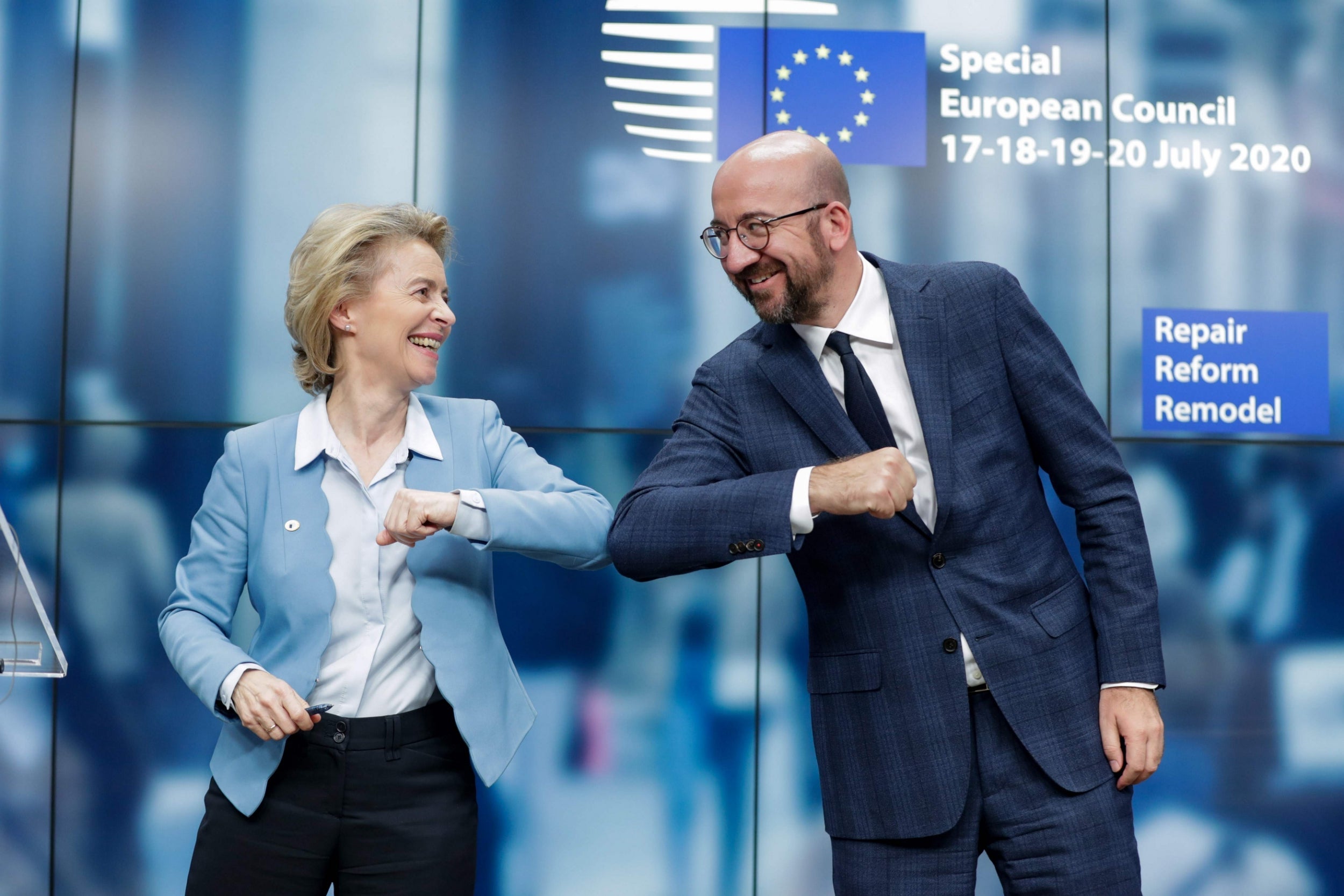EU recovery package and budget deal: What it means for the future of Europe
Analysis: The mammoth negotiating session could go down in history as one that pushed Europe on another step towards integration, says Jon Stone


After a gruelling summit, EU leaders finally struck a deal on the bloc’s coronavirus recovery package and budget in the early hours of Tuesday morning.
It was one of the longest meetings ever held by the union, second only to the 2000 summit in Nice, which lasted 20 minutes longer. The gathering of leaders was made even more notable by the fact that it took place under social distancing rules.
The recovery package involves €750bn (£677bn) in grants and loans to counter the impact of the pandemic in the 27-member bloc. In the end, members split the difference, with about half coming from grants and half from loans – this had been a subject of contention. A budget for the union was also agreed.
There will be checks on the recovery cash to ensure funds aren’t misused, with spending plans submitted to Brussels to reassure the “frugal four” countries headed by the Netherlands who had wanted a less ambitious package of measures.
The European Commission will borrow that €750bn on the international capital markets and distribute it among member states – a huge expansion of European integration that smashes a taboo over EU institutions taking on debt. European Council president Charles Michel said it was a “pivotal” moment for the union.
Institutionally, the biggest story is this evolution in what the European Union is and does. The bloc’s institutions failed to find their feet early in the crisis, with member states taking centre stage and suggestions politely ignored. But it may come out of it more integrated than ever.
But politically, Europe has also realigned. Too often in recent years the story, at least as told in the British press, has been one of France vs Germany. But nobody can mistake that as the narrative now: this package saw the bloc’s two biggest powers stand shoulder-to-shoulder, mostly thanks to Angela Merkel’s recent shift away from frugality and towards European integration.
Claims that the Netherlands is “the new Britain” and wants to block everything also turned out to be only half-true. Really, the Dutch in the end approved of most of what they were asked, with some safeguards. One question will be: with Merkel on the way out and Emmanuel Macron’s re-election uncertain, will that alliance between France and Germany last into the future, or was this a special moment where the stars aligned?
On the budget, which was agreed simultaneously with the recovery package, member states had to find a way to replace the cash lost by Britain’s exit. While a deal was struck, question marks still hang over the agreement, which many in Brussels are calling a fudge. Notably, there is confusion about what new rules designed to enforce “rule of law” over rogue member states like Hungary will actually mean in practice, following several rounds of watering-down to get the deal past tired leaders.
Perhaps the biggest long-term implication of the recovery deal is hidden in the small print, however. The agreement says borrowed funds must be repaid in a steady and predictable way, with repayments expected to put serious pressure on the future EU budget. Insiders say this pressure may in turn increase a willingness to find additional revenue streams for the union – so-called “own resource” budgets. At the moment it is largely funded by member state contributions, but that may not last, and funding debt repayments may prove a bridge too far. If this is borne out, the legacy of the deal could be even more integration.
Join our commenting forum
Join thought-provoking conversations, follow other Independent readers and see their replies
Comments